Column by Mahfuz Anam: ‘Gladiatorial’ street contests and prospects of fair elections

From the looks of it, our two major political parties are preparing for "gladiatorial" street fights as a part of their election preparation. Can this be democracy? There is some logic to mass mobilisation, but having a demonstration each time the opposition has one, and on the same day, how logical is that? Will it lead to a free and fair election or jeopardise it further? As the election is getting nearer, the possibility of a nightmarish pre-election period is driving fear and panic among the people.
We may have dug the first under-river tunnel in South Asia, built a bridge over one of the mightiest and toughest of rivers in the world, made virtual revolution in agriculture and other sectors, caught up with modern cities in building metro, elevated expressway, etc., yet we have not progressed even an inch with our democracy. This is where we have failed ourselves most miserably. The sad state of our parliament, which has transformed from being the "House of the People" to nothing more than an extension of the government of the day, exemplifies this failure most dramatically. Democracy remains totally under the thumb of the party that forms the government and defines what is and what is not democracy. It remains violence-ridden where freedom of expression is totally compromised by the fear of laws like the Digital Security Act and where the culture of dissent is demonised to an extent that dissenters are seen as enemies rather than as integral to the democratic process.
Election is when voters are supposed to be "the king"; it is a time when political leaders literally genuflect before the "court of the people," either begging forgiveness for mistakes made, or explaining why voters should trust them or plead for support in the upcoming election. It is the time when power reverses and the common people have – once every five years in our case – the upper hand. It is the moment when the "Republic" shows its true colour and the people get to feel, in both collective and personal terms, what a democratic state is really like.
Nothing like that is happening in our case. Instead of feeling like "kingmakers," we feel just as threatened, as intimidated and as dominated by the powers that be as we did during the past. Nothing has changed in terms of voters feeling empowered because it is election time.
As we mentioned at the beginning, when AL and BNP both take a position of no dialogue and no compromise, the implication is that it will be settled by force on the streets.
When politics becomes nothing more than fighting on the streets, the question arises: which type of workers – on both sides – get the upper hand? The ones who are decent, sober, politically conscious and somewhat culturally-oriented are usually sidelined. It is those who are crude, given to muscle power, used to violence and adept at using weapons who emerge more in leadership roles. They, in turn, preach more street fights because it brings them increased clout, power and money. The more the street fights, the more the goons take centre stage, and the more the exchanges between the two sides get violent. Soon the violence acquires its own dynamics and goes up in degrees of ferocity and frequency. Political activities, especially movements, get more and more dependent on "muscle" rather than "brain" power. The political elements, who may set a limit to the violence, get pushed out of the scene. The birth of "helmet bahini" among the student wing of the ruling party brought the violent ones – those who could beat up the opponents and sometimes wound them mortally and even kill them – to the fore. The more sober elements within Bangladesh Chhatra League (BCL) – some may argue that they are already an extinct species – gradually lost influence and leadership.
We wait five years for the chance to vote, to express our judgment on the incumbent, to examine the credentials of those who are vying for power, to evaluate the plans and policies implemented, to express our displeasure on things that we really hate and also share our own vision on how we see our future. This is what happens when the people are allowed to have a free and fair election.
A prolonged process of street violence leads to a deterioration of quality of politics in general and in the quality of political leadership in particular. We are a good example of that.
As to the consequences of their actions, both parties are in denial – denial of the reality that their respective positions have already led to a backsliding of democratic culture and to the rise of violence and with more of it in the coming days. Their denial cannot be good for the country that they pretend to speak on behalf of.
Why should we – the voters – be forced to accept this situation? We wait five years for the chance to vote, to express our judgment on the incumbent, to examine the credentials of those who are vying for power, to evaluate the plans and policies implemented, to express our displeasure on things that we really hate and also share our own vision on how we see our future. This is what happens when the people are allowed to have a free and fair election.
One of the most dangerous aspects of power is that those who wield it for long become used to their own make-believe world. It starts with them denying the truth and leads to them believing their own rhetoric. As they keep on claiming "nothing is wrong," they soon start believing "we can do nothing wrong" and, soon enough, their thinking loses touch with the facts on the ground. They inevitably fall victim to their own propaganda which results in shutting down any authentic feedback mechanism that could have brought them back into the real world. This is when the civil society, grassroots level NGOs, professional think tanks and independent media become the "enemy," whose views are not only rejected but also suppressed and their institutions demonised. As propaganda needs to hold sway over facts, state "agencies" are called into action who subtly and not so subtly get into the act of controlling the narrative. Paid agents of the state become peddlers of the truth and the truth tellers a victim of the state.
This blurring of the reality and gradual dominance of propaganda is one of the most dangerous post-truth realities that developing countries are facing and of which we are an integral part. From gladiatorial street flighting to controlling the narrative, democracy in Bangladesh is facing an existential challenge which none of the major actors seem to be aware of and, more sadly, concerned about.
Mahfuz Anam is the editor and publisher of The Daily Star.

 For all latest news, follow The Daily Star's Google News channel.
For all latest news, follow The Daily Star's Google News channel. 
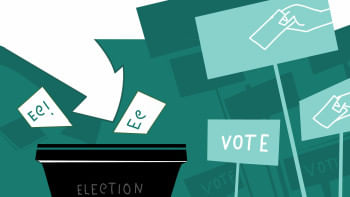


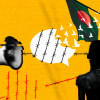
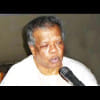
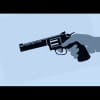
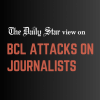
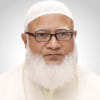

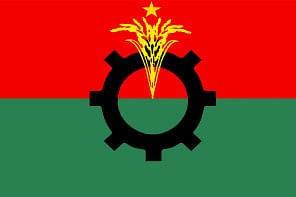
Comments